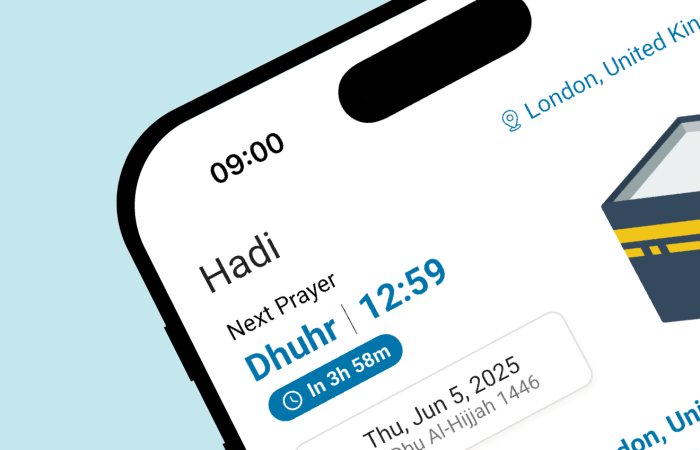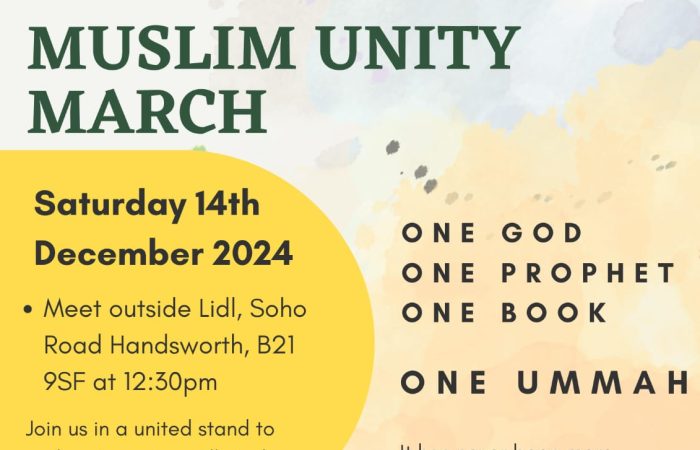One of the most important reasons for the institution of Prophethood was to establish an exemplary model of creating social justice. Allah (SWT1) says in the Noble Qur’an:
“Certainly We have sent Our messengers with clear guidance; and We sent down to them the Book and the scale so that humans may conduct themselves with justice.” [57:25]
When we look at the life of Prophet Muhammad (SAW2) in particular, we find that in this respect he has achieved phenomenal success. There have been many reformers and social activists throughout history, but very few come close in creating as much change in as short a time as he was able to do.
To a society that was deeply divided along racial and tribal lines, he advanced the concept of equality of all human beings. From an illiterate people who had fallen deep in ignorance and superstition, his educational reform brought forth generation after generation of mankind’s greatest thinkers. He changed licentiousness into dignity and profligacy into moderation. He was able to mend together the various threads of society, such that age old enemies and bitter rivals began to regard each other as brothers. He gave the women who had long being neglected and mistreated a voice and a platform of honour among the very people who previously were known for burying their infant daughters alive.
The same women, who once used to be treated as nothing more than possessions to be passed along and inherited, were now given large shares of inheritance and empowered to make their own choices. Under his guidance, a system of justice was established in which the rights of all were safeguarded and there was no longer any room for preferential treatment or bias. The economy began to thrive as all forms of short-changing and deception were gradually removed from the marketplaces; and a social welfare system replaced the individualistic greed of earlier times. All this and more was done in the space of just 23 years, without relying on wealth, a throne or through strength of arms. It was at its very core, a movement that began from the ground; a movement of hearts and minds, spread by popular consent of the masses.
Seven principles of the Prophet
There are seven important principles the Prophet (SAW) applied which if we follow, will help us be successful Insha’Allah, in our own humble efforts.
1. Lay the groundwork
The Prophet (SAW) had begun by laying the groundwork: for forty years familiarising himself with the troubles of his society and the mentality of his people. He established himself as a man of impeccable character, who was known by all for complete honesty and integrity. This meant that he was often sought out as a mediator in disputes, a custodian for possessions, and a witness in transactions. In this way he became a leader without ever aspiring for leadership.
From this we can learn that we do not need to be in any particular position of authority in order to make a positive change. By simply setting out each day to further the cause of tolerance and harmony means that in time each and every one of us can improve the world in which we live.
2. Act according to your ability
Human beings learn from each other and conform to patterns of behaviour deemed acceptable by those around them. Therefore among the best tools for engendering a process of social change are “amr bil ma’roof” (enjoinment of good) and “nahy ‘anil Munkar” (dissuading from evil).
However different circumstances necessitate different approaches. Sometimes we are in positions of power and sometimes we are not. The Prophet (SAW) informed us of three different methods which he himself used at different points in his life, when he said:
“Whosoever of you sees an evil, let him change it with his hand; and if he is not able to do so, then with his tongue; and if he is not able to do so, then with his heart — and that is the minimum of faith.” 3
3. Be courteous
The way Prophet Muhammad (SAW) behaved with people was key to his success. He was rarely seen without a smile upon his face. His speech would gladden the hearts of people, and his actions would relieve their distresses. His forgiving nature turned many a bitter enemy into a devoted friend.
Allah (SWT) says in the Qur’an,
“Thus it is due to mercy from Allah that you deal with them gently, and had you been rough, hard hearted, they would certainly have dispersed from around you.” [3:159].
From this we learn that when trying to create change in the hearts of people, kind words and a positive outlook are more effective than anything else.
4. Work in stages
There are lessons to be learnt from how the Prophet (SAW) dealt with particular issues. The widespread consumption of alcoholic drinks had caused a lot of social problems, but it had become so deeply entangled with daily life that its removal would not be easy. To deal with this, Allah (SWT) sent a series of revelations each after a period of time, becoming increasingly critical of the consumption of alcohol. When the final revelation on this matter arrived the minds of people were ready to accept change, and it is said that among the Muslims those who had a glass in their hands spilt it, and those who had taken a sip spat it out. Since that time, Muslim societies have for the most part remained totally free of alcohol.
If we compare this to the attempt made in the 1920s by the American government during the so-called Prohibition era, we find that enforcing a sudden change does not work when the people are not ready for it. Criminals took advantage of the situation and began an extensive bootlegging operation. Within a few years the government had no choice but to lift the prohibition. Since then there has not been another attempt. Had they followed the methodology set out by the Prophet Muhammad (SAW), society would have prospered instead of the criminals.
5. Work together
While great accomplishments may be made by one person, society at large can only progress if everyone plays a part. The Prophet (SAW) was always mindful of this and tried wherever possible to be inclusive, even when the people were more focussed on their own interests.
During the rebuilding of the Holy Kaaba, a great dispute arose between rival clans over who would have the honour of placing the black stone. The Prophet Muhammad (SAW) resolved this with the suggestion that they place it on a cloth and a representative from each of them should take hold of a corner and move it into place together. This not only appeased them, but also built bridges between through the shared experience.
6. Start small
Even the mightiest river begins with a few drops of rain. The Prophet (SAW) first preached to his household, then to a few select people, then to his clan, then to the people of his city, the people of his land, the people of neighbouring lands and finally the message spread to the entire world.
Today we have the means to communicate instantly with people anywhere on Earth. One person can easily reach out to millions. Yet we should always keep in mind the example of the Prophet (SAW) and realise that if we want to change the world, there is no better place to start than with ourselves and those around us. He (SAW) has told us, “Every one of you is a shepherd and is responsible for his flock”4
7. Be patient and persevere
Throughout the course of his mission, the Prophet (SAW) and those with him were faced with severe resistance from the powerful elite. They were mocked at, abused, pelted with stones, deprived of wealth, exiled from their homes and even killed. Yet they remained steadfast and did not buckle under any kind of pressure.
We find in Surah Baqarah the following promise from Allah (SWT),
“And We will most certainly try you with somewhat of fear and hunger and loss of property and lives and fruits; and give good news to the patient.” [2:155]
Ultimately it was on account of unflinching patience and continued commitment that the movement for social change was successful. There is in this a lesson for us in our own lives and the challenges we face from time to time.
Conclusion
Through analysis of his life, we arrive at the realisation that the Prophet Muhammad (SAW) is a role model not just for Muslims, but for all of humanity. The lessons he teaches us are applicable in every place and every age. Today we only need to look around us to see that there is inequality, injustice and ignorance prevalent in this world. The solutions have already been shown to us; perhaps it is time for us as a society to implement them?
[1] SWT = Subhanahu wa Ta’ala, an Arabic phrase which means “Glorified and Exalted be He”
↩
[2] SAW = Salla Allāhu ʿalay-hi Wa aalihi wa sallam, An Arabic phrase which means “May Allah grant peace and honour on him and his family.”
↩
[3] Sahih Muslim, Book 01, Hadith 79
↩
[4] Sahih Muslim, Book 020, Hadith 4496
↩


